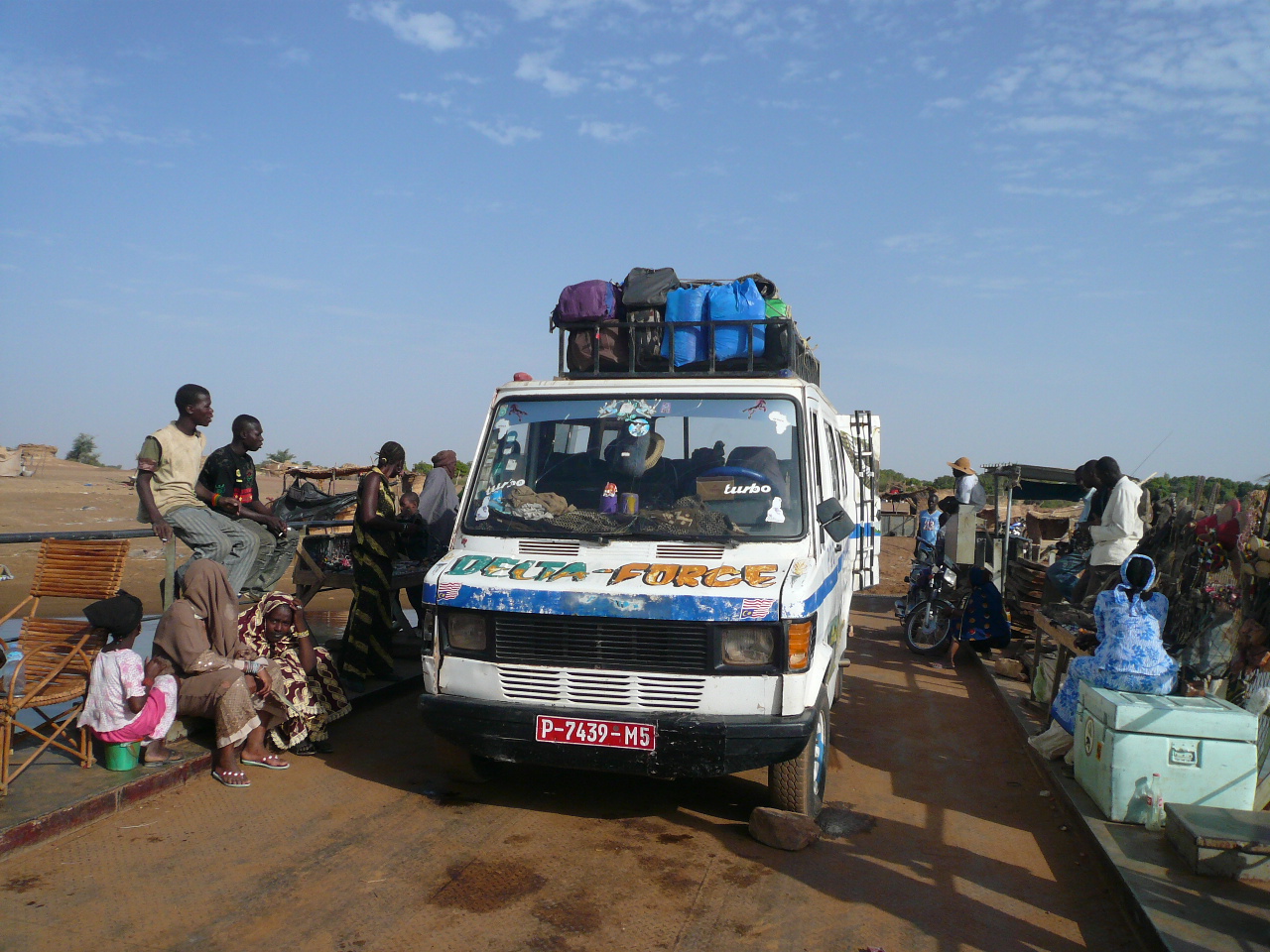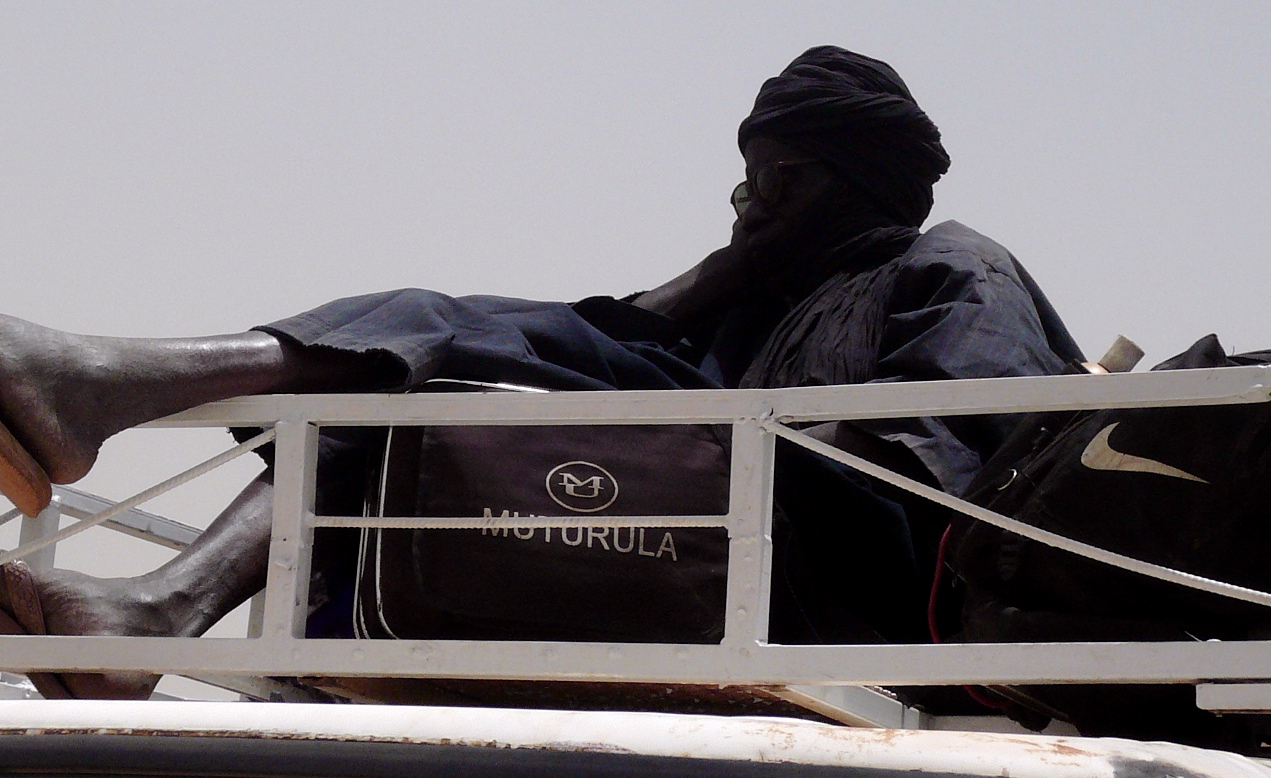Tuesday, April 29, 2008
Thursday, April 03, 2008
Djenné and Mopti

Joseph’s house was made entirely from mud, rice and beurre de karité. We lay on its roof, as we had done every morning for a week, watching the stars disappear and listening to the melody of the muezzin prostrating and folding in upon itself, causing no ripples in the hot morning air. A lizard painted comic flesh pink and sporting a dusty black and white tux paused on one parapet to perform a series of hurried press-ups before moving on to the next. The mosque of Djenné – the largest mud building in the world - loomed over the roofless compounds below - the open grids where people were washing, grain sifting, mango eating, millet pounding, arguing, baby rocking and praying - watching over them like the eye of Allah.
We were on our way to Mopti, a 100 km trip that took seven hours each way squished into a bush taxi, inhaling fumes and dust and sweat, crouching in amongst goats, seed sacks, snotty babies and mangoes. It’s all part of the local colour, we said to ourselves as we gasped for air and swallowed forty degree Harmattan-whipped sand. Nausea and heat rash were a given by now and Julian had the beginnings of dysentery. On the top of the rusty metal work called The Bus a Tuareg - black as the night and wound round in jet- black fabric - crouched on black Motorola and Nike bags. I hope he gets royalties, I thought.


From the moment we fell out of the vehicle onto the dusty roads of the town just south of Timbuktoo, were the Niger and Bani rivers converge, we were harassed.
‘Tu es plus pressé que la musique!’
‘Tu es libre comme la capitaine dans le Niger; comme le vent dans le desert’
Despite the fact that we were as free as the Nile perch in the Niger, our aggressor insisted, and the wind in the Sahara, we Westeners just came to Africa to take take take take, and Africa did not like it because Africa liked to share……I wondered briefly if he would consider the adoption of a homeless Malian baby ‘taking’. For a moment I thought he might be right. I held my tongue. He wittered on.
‘Babu Babu!’ exclaimed the little faces at knee level.
We lost the hassler somewhere amongst the dried fish and headed to Bozo Bar where we watched the universe of pinasses unload their cargo at the end of the world?. Luckily, especially with the help of some Bamako brew, we were not rendered completely immune to seduction and we succumbed to the delectable sunset cruise, an hour of moving through riverlives accompanied by the silent slice of the Nile Kingfisher.
On our return to Djenné I finally plucked up courage to ring the number I had, thanks to Joseph’s research, scribbled on a paper and scrunched in plastic and kept for a week in my bum-bag; that of the great Cora player Toumani Diabeté.
‘Mr Diabeté?
‘Yes?’
‘I am a huge admirer of your music. I am a musician myself…’ One of the boys in the ‘cyber café’ still had his finger stuck on the last button of Toumani’s number, and the other breathed down my neck, smelling of goat. ‘We are coming to Bamako and I was wondering if you might be playing at all this weekend?’
‘I am not playing on Saturday, but tomorrow you can come to the Hogon. Twenty three - thirty till three o’clock. Thank you for your call. Enchanté.’
We were sore and sick from the journey, and desperate not to have to get up at dawn to wait for a bush taxi to wait for a Bani bus, which would take twelve sizzling hours to lurch into Bamako. What would we do? Arrive, nap and get up in the middle of the night to hear my hero? I was up for it but Julian was sicker and definitely not. We had some serious meetings ahead: two orphanages, our lawyer, the head of the adoption commission….we needed to be relaxed.
Toumani would have to wait while ate more mangoes, sat a good deal on the toilet and enjoyed yet another star melting morning on Joseph’s roof. Hopefully one day, we tried to console ourselves, we would be spending a good deal of time in Bamako getting to know our child.







